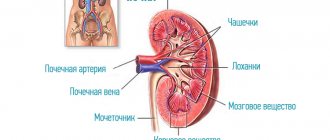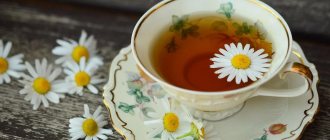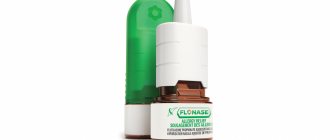Cough is one of the most unpleasant symptoms of any cold. It is difficult to get rid of it even after an acute respiratory infection, and if complications appear in the form of bronchitis, tracheitis, especially pneumonia, it takes a lot of effort and time to eliminate the symptom. Medicines help get rid of the underlying disease .
But sometimes you have to resort to traditional medicine to help the body cope with a prolonged cough, when antibiotics and sputum expectorants become simply dangerous due to a long course of use.
Herbs and teas to relieve symptoms may also be recommended by doctors. Let's figure out which herbs thin phlegm.
When are expectorants needed?
Any cough is a reflex , with the help of which the bronchi and lungs are cleared of foreign objects and substances.
Therefore, a person coughs, choking, exhaling forcefully and sharply through the mouth, with a cold, trying to get rid of accumulated phlegm in the trachea or lungs, with many other diseases.
A non-productive, dry cough is one of the most dangerous; doctors often have to prescribe special medications that suppress the cough reflex if the symptom is caused by tumors, edema or an allergic reaction.
Attention . Mucus in the bronchi is a normal reaction of the body. It helps to breathe, traps microorganisms, that is, it is produced and updated constantly. But during the inflammatory process, swelling, it becomes much larger, the composition, viscosity, color changes, bacteria begin to multiply in it. The faster this substance is removed from the body, the greater the chance of a speedy recovery.
With a normal productive cough, when the result is the discharge of sputum, suppression of cough centers can become dangerous , since it is in the sputum that many pathogenic microorganisms develop that can cause inflammatory processes that destroy the organs of the respiratory system .
In this case, it is expectorants that help facilitate the “cleaning” of the respiratory tract, liquefying the viscous secretion and removing it from the bronchi, preventing it from descending into the lower sections and lungs.
Possible causes of dry cough in adults
There are several reasons for this symptom. The choice of drugs for the treatment of dry cough depends on their correct determination.
- Respiratory diseases
. This can be inflammation in the bronchi, trachea and larynx, pneumonia, bronchial asthma and even whooping cough, which is much less common in adults than in children and occurs in a milder form. Depending on the causative disease, the cough may have characteristic features. For example, with laryngitis it takes on a “barking” character, and with bronchitis it may be accompanied by whistling and wheezing chest sounds.
- Adverse reaction to medications.
In some people, blood pressure medications may cause an infrequent but regular dry cough. It usually goes away with the selection of another drug for hypertension. - Long-term smoking.
This bad habit causes irritation of the bronchi with substances that are part of tobacco smoke. The so-called smoker's bronchitis, which manifests itself as a dry, regular cough, is familiar to everyone who cannot live without cigarettes. The same is observed in people whose professional or daily activities involve being in a gassy or dusty environment. In this case, particles of dust, smoke, and gas have the same irritating effect on the mucous membrane of the respiratory tract as smoking, and cause coughing. - Allergic reactions.
Any allergens - odors, pollen, food, medicines, dust - can cause a sore throat and a sudden, sharp, dry cough. - Dehydration
. With elevated body temperature and a lack of consumed water, tea and other drinks, a productive, wet cough can quickly transform into a dry one: sputum thickens due to a lack of fluid in the body. - Stressful situations and emotional experiences
. In this case, the cause of a dry cough is the individual characteristics of the human nervous system. As a rule, when a normal emotional state is restored, it goes away on its own and does not require taking any medications.
What herbs have an expectorant effect?
To facilitate the removal of sputum, for many centuries, medicinal herbs have been used that have the ability to thin sputum and have an anti-inflammatory effect. Herbs that thin phlegm :
- Licorice root - in the old days it was called licorice. A universal remedy that enhances the effect of any medicine for coughing, it can be drunk as a decoction, simply chewed, or used for inhalation. It is an anti-inflammatory agent, copes with microbes, and is rich in vitamins, so treatment started on time will help avoid bronchitis that lasts for weeks.
- Coltsfoot - small, inconspicuous flowers on a thin green stem appear in early spring along with the first flowers. An equally unique plant that helps with chronic bronchitis, tuberculosis, pneumonia, and makes life easier for asthmatics. Decoctions of freshly picked May flowers, leaves, and dry raw materials are recommended for drinking by both children and adults.
- Elecampane - the plant got its name for a reason; nature has endowed it with powerful strength that can overcome many diseases. The roots and rhizomes of elecampane are used for inhalation, in decoctions, infusions to combat inflammation, as an antimicrobial and expectorant.
- Chamomile is an excellent antiseptic and phlegm thinner that helps soothe irritation.
- Thyme.
- Oregano.
- Althea.
- Calendula.
- Sage.
- Ledum.
- Raspberries - young shoots and leaves are known not only as an antipyretic, but also an anti-inflammatory, expectorant in decoctions.
- St. John's wort - relieves, soothes irritation, facilitates coughing.
Many herbs have an expectorant effect, so infusions and decoctions of them will be useful for bronchitis.
But each of the plants also has contraindications , so before use you need to consult a doctor to find out whether you need to take medications along with herbs, which of them can be harmful for chronic diseases of the cardiovascular system and gastrointestinal tract.
TOP 10 effective herbs for coughs
Let's look at the most effective herbs for different types of cough and the conditions for their use.
Licorice
Licorice is most often used for diseases of the bronchi, lungs and upper respiratory tract, as it has a pronounced expectorant and anti-inflammatory effect. The herb is safe for infants, relieves attacks of wet and dry cough, reduces pain, and increases the activity of the respiratory tract.
Licorice exhibits antiallergic activity. The herb stops inflammatory reactions caused by histamine, serotonin and other substances, therefore it is effective for obstructive bronchitis and allergic cough.
At home, you can prepare an expectorant decoction using the following recipe:
- 1 tbsp. l. herbs pour 200 ml of boiling water.
- Leave in a water bath for 30 minutes.
Adults drink 2 tbsp. l. 4 times a day. The dosage for children should be calculated by a doctor.
Licorice-based medications should not be used for more than 10 days, as the water-electrolyte balance is disrupted. They are also contraindicated for diabetes, hypertension, and heart failure.
Thermopsis
If there is difficult to separate viscous sputum, thermopsis grass is suitable. It has an expectorant effect and increases the secretion of the bronchial glands due to alkaloids in the plant. Effective for tracheitis, bronchitis, pneumonia.
Recipe for a decoction based on thermopsis:
- Pour 1 g of herb into 200 ml of boiling water.
- Leave for 1 hour in a thermos.
Adults take 1 tbsp. l. up to 3-5 times a day, children – 1 tsp.
For hypertension, the herb is contraindicated.
Thyme
Thyme or thyme relieves wet and dry cough. It stimulates the motor activity of the ciliated epithelium of the respiratory tract, thereby increasing mucus production, helping to reduce coughing attacks and the viscosity of sputum.
Thyme is used for the following diseases:
- bronchitis;
- tracheitis;
- pneumonia;
- whooping cough.
In folk medicine it is used as an expectorant, secretomotor, mucolytic, anti-inflammatory and antimicrobial agent. The medicinal properties of the herb are based on the essential oils in the composition.
Ingredients for preparing an antitussive decoction:
- thyme – 5 g;
- water – 200 ml.
Pour boiling water over the raw materials and leave until completely cool.
In addition to its main effect, thyme produces a slight sedative effect. The decoction can be given 1 tbsp. l. for children before bedtime so that the baby coughs less at night.
Althea
Marshmallow is generally beneficial for the respiratory system. It strengthens the immune system, helps resist viral infections, and restores the integrity of mucous membranes.
The following properties are valuable in the treatment of cough attacks:
- expectorant;
- antitussive;
- emollient;
- enveloping;
- moisturizing;
- painkiller;
- anti-inflammatory. {3}
In folk medicine, only the roots of the plant are used, which contain pectins, mucous substances, sugars, phytosterols, microelements and others.
Recipe based on marshmallow root:
- 2 tsp. Soak the crushed root overnight in 250 ml of cold water. In the morning the liquid will become viscous.
- Separately 2 tsp. pour 250 ml of boiling water over mullein leaves and bring to a boil.
- Leave for 10 minutes.
- Combine the strained infusion of mullein and marshmallow, add 0.5 liters of liquid honey. Cook the mixture over low heat for 2 hours, but do not bring to a boil.
The syrup should be thick. Adults drink 1 tsp. 4-5 times a day, children – 1/2 tsp.
Store marshmallow syrup in the refrigerator.
Ivy
Ivy is an indispensable remedy for dry and wet cough. Thanks to saponins, flavonoids, essential oils and organic acids, it has a complex effect:
- antitussive;
- expectorant;
- thinning sputum;
- antispasmodic;
- anti-inflammatory;
- antimicrobial.
The herb extremely rarely causes allergies, so it is suitable for treating children, but it is contraindicated for liver and brain diseases.
To get rid of bronchitis and its symptoms, the following recipe is suitable:
- 100 g of raw materials (leaves and stems of the plant in equal proportions) pour 100 ml of water.
- Keep in a water bath after boiling for 20 minutes.
- Bring the volume of the product to 200 ml.
Take 30 ml up to 3-4 times.
Sage
Sage eliminates spasms, stimulates expectoration and removes phlegm. It also has an antibacterial and anti-inflammatory effect, so it improves the condition of diseases of the ENT organs. The decoction can be used to gargle for coughs caused by pharyngitis, sore throat or laryngitis.
Medicine recipe:
- 1 tbsp. l. dry herbs pour 1 tbsp. milk.
- Bring to a boil, remove from heat.
The recipe for this drink is suitable for treating children over 3 years old. Drink warm before bed.
Ledum
Ledum has a powerful expectorant and mucolytic effect. The substances contained in the herb dilute mucus and remove it from the bronchi. Ledum transforms a non-productive cough into a productive one, since it stimulates the work of the mucous epithelium and the production of mucus. {3}
In addition, it has antipyretic, antispasmodic, antiviral and antiseptic effects. Suitable for the treatment of bronchial asthma, pneumonia, bronchitis.
Ledum is prescribed to children under 14 years of age with caution; it is prohibited during pregnancy, lactation, hypotension, hepatitis and other liver diseases.
You need to brew the herb like this:
- Add 2 tbsp. l. raw materials into a thermos, pour 0.5 liters of boiling water.
- Leave for 1 hour.
Drink warm, 1 tbsp. l. every 6 hours
Eucalyptus
Eucalyptus is most effective for severe dry cough. It is an antitussive, relieves the feeling of prickly throat, reduces irritation of the mucous membranes of the bronchi, trachea and larynx. Thanks to eucalyptus, cough attacks become less painful and smoothly turn into productive ones.
The leaves of the plant are used for medicinal purposes. Treatment methods:
- Steam inhalations . For 500 ml of boiling water you will need 3 tbsp. l. crushed eucalyptus leaves. Boil for 10-15 minutes, then use for inhalation. Inhale steam for up to 5 minutes. After inhalations, you should not go outside for 1-2 hours.
- Tea. It should be drunk in small sips throughout the day. You will need 6 tbsp. l. raw materials and 0.5 liters of boiling water. Leave for 15 minutes.
If you have kidney failure, liver, heart or vascular diseases, consult a doctor.
Coltsfoot
For profuse phlegm that cannot be coughed up, coltsfoot is suitable. The grass makes the mucus thinner. For bronchitis and throat diseases, it reduces inflammation, lowers body temperature, and restores the mucous membrane of the respiratory tract. Also suitable for complex treatment of ARVI.
Recipe for bronchitis:
- 1 tbsp. l. crushed dry leaves, pour 200 ml of boiling water.
- Keep in a water bath for 15 minutes.
- Leave for 45 minutes.
- Bring the volume of liquid to 1 tbsp.
Take the decoction 2-3 times a day, 100 ml.
Plantain
For viscous and difficult to separate sputum, products with plantain are suitable. They have a pronounced mucolytic and anti-inflammatory effect, so they are effective even for pneumonia. The main indication for the use of plantain herb is cough with laryngitis, tracheitis, ARVI, bronchitis. Gastritis with high acidity is contraindicated for use.
To prepare a medicinal decoction you will need:
- plantain – 2 tbsp. l.;
- boiling water – 200 ml.
Pour boiling water over the raw materials and keep in a water bath for half an hour. Drink 100 ml per 30 minutes. before meals 3 times a day.
Herbs for bronchial asthma
Bronchial asthma causes a debilitating cough that brings little relief.
To free the bronchi from accumulated mucus, special means are needed to facilitate breathing and relieve swelling.
Herbs for sputum removal have shown the most effectiveness
- oregano is a diaphoretic and facilitates the production, liquefaction and removal of mucus from the body; a decoction of it is pleasant, soothing, and helps to fall asleep;
- oats - a decoction of cereal facilitates the removal of phlegm, you can add honey, milk, aloe juice to it;
- wild rosemary decoction – has both an expectorant and antiallergic effect;
- elecampane - decoctions and inhalations from rhizomes come to the aid of this disease, they are not addictive, so you can drink the decoction throughout your life and to prevent attacks;
- ginger – freshly squeezed juice of one root with a pinch of salt relieves an attack and helps to cough productively.
Important . With this dangerous disease, any remedy should be discussed with a doctor, since against the background of an allergy, both spasm and life-threatening swelling can develop.
Be sure to make sure that the plant is not an allergen. Otherwise, it will be very difficult to predict the result.
How to treat dry cough in adults
To cure a dry cough, you need a comprehensive approach to the problem. It includes eliminating the cause of this symptom (disease or provoking circumstances), following all doctor’s recommendations, taking prescribed medications and staying in bed in cases where the cough is accompanied by high body temperature. In addition, it is important to follow some rules that help reduce the burden on the respiratory system and facilitate the process of their treatment and recovery.
Humidity and freshness
When treating dry cough in adults, try to keep the air in the room fresh and moist. Ventilate the room more often or, if possible, keep the window ajar if the weather outside allows it. The influx of fresh air reduces the concentration of pathogens present in the room air. If you have a humidifier, turn it on; The humidity in the room should be at least 50%. If there is no such device, and the heating is already on, place wet towels on the radiators and change them as they dry. Wiping the floor in the patient's room with a very damp cloth once or twice a day will also do. By getting rid of dry air, you can reduce the likelihood of drying out the mucous membrane of the respiratory tract and, as a result, relieve coughing caused by insufficient hydration.
Drink plenty of fluids
You should drink as much as possible, and always have a cup of warm liquid at hand. It can be just water, herbal, fruit or black tea, fruit drink or milk with butter, familiar to everyone from childhood. Warm water with lemon and honey (if you are not allergic to honey) or a ginger drink at night helps treat dry cough at home. The temperature of the liquid should be at body temperature. Drinking plenty of fluids will help get rid of dehydration or prevent thickening of mucus in the bronchi caused by a lack of fluid.
Medicines
Many dry cough treatments contain substances to thin mucus or facilitate expectoration. If, as in the case of Doctor MOM® cough syrup, the drugs are made on the basis of medicinal herbs, then they have few side effects, and such drugs can be taken for a long time. The combination of 10 medicinal herbs acts in different directions.
Special exercises
In addition to taking medications, to treat a severe cough, you can use methods that help the respiratory system cope with it more effectively. There is a whole set of exercises called “postural drainage”. It is carried out on the recommendation of a doctor and includes special breathing and drainage exercises to help remove mucus. Another method - percussion massage - improves blood circulation and facilitates the removal of mucus from the bronchi. This auxiliary treatment is recommended for adults and especially children.
The best herbs for dry cough
Inhalations of certain herbs can relieve dry cough. After all, the main thing with it is to achieve the discharge of sputum , which irritates the respiratory tract.
Chamomile - will soothe an irritated throat, help the formation of more mucus, that is, begin to remove harmful substances.
Coltsfoot - the vapors of this plant also help relieve inflammation and also soften inflamed mucous membranes.
If you have a dry cough, it is recommended to drink as much as possible. Black radish will help in treatment, the juice of which with honey is irreplaceable. It is more like a syrup that thins and removes mucus from the bronchi
Herbal remedies for cough
Chest collection is a mixture of crushed medicinal plants for the treatment of colds and coughs. In the pharmacy you can find 4 types of herbal medicine, which differ in composition and indications:
- Breast collection No. 1 . Contains coltsfoot, marshmallow root and oregano, effective for severe cough attacks, helps get rid of accumulated phlegm.
- Breast collection No. 2 . Contains plantain, licorice root, coltsfoot. A mixture of herbs reduces inflammation during ARVI, normalizes expectoration and reduces the severity of dry cough attacks.
- Breast collection No. 3 . Contains pine buds, marshmallow root, sage and anise. This collection is effective for both wet and dry coughs. It destroys pathogens and has a sedative and anti-inflammatory effect.
- Breast collection No. 4 . It is an expectorant and anti-inflammatory agent for bronchitis, laryngitis, flu, and colds. Contains calendula, violet, wild rosemary, mint and chamomile.
Herbs for coughing up phlegm in smokers
Chronic bronchitis with a constant cough, which can only be relieved for a short time, is a punishment for the passion for nicotine. Doctors call the cough that plagues smokers smoker's bronchitis due to its particularly harmful nature.
It is best to quit a bad habit that leads to lung cancer, COPD, and brings death closer.
Herbs for coughs with sputum, which are made on the basis of :
- wild rosemary;
- thermopsis;
- fennel;
- licorice.
It must be remembered that even after the habit has become a thing of the past, the damaged bronchi will remind of themselves. Drinking healthy soothing and phlegm-reducing tea will ease the period of withdrawal from nicotine; these herbs, in combination with oat decoction, reduce the craving for cigarettes during critical periods.
Herbs to thin phlegm when coughing in children
Finding a phlegm thinner in children is not easy. During treatment, adults can drink bitter, unpleasant-tasting decoctions and patiently endure inhalations.
With children, everything is much more complicated, although the young body needs to be carefully protected from addiction to antibiotics and tablets to thin the sputum.
- Linden blossom is a healthy, very pleasant-tasting linden tea that smells like honey, children readily drink it.
- Mint and lemon balm also do not cause unpleasant emotions in them.
- wort , yarrow and chamomile are also suitable for treatment.
- Licorice root has a very sweet taste and can be given in decoctions or simply chewed fresh or dried.
Before starting treatment, you need to talk with your pediatrician to clarify the dosage, decide how often to take the decoctions, should you offer them constantly or limit yourself to 2 - 3 tsp. in a day.
Expectorant herbal teas
In any pharmacy you can buy herbs for phlegm, are called “ chest teas ”, to relieve the symptoms of colds and bronchitis. Most of them are offered in convenient packages that greatly simplify their use .
But you can make such mixtures yourself; most of the herbs go well together and give a pleasant original taste and aroma .
Taken together, they are much more effective; thinning sputum with folk remedies will make the treatment tasty, help both heal and strengthen the body.











